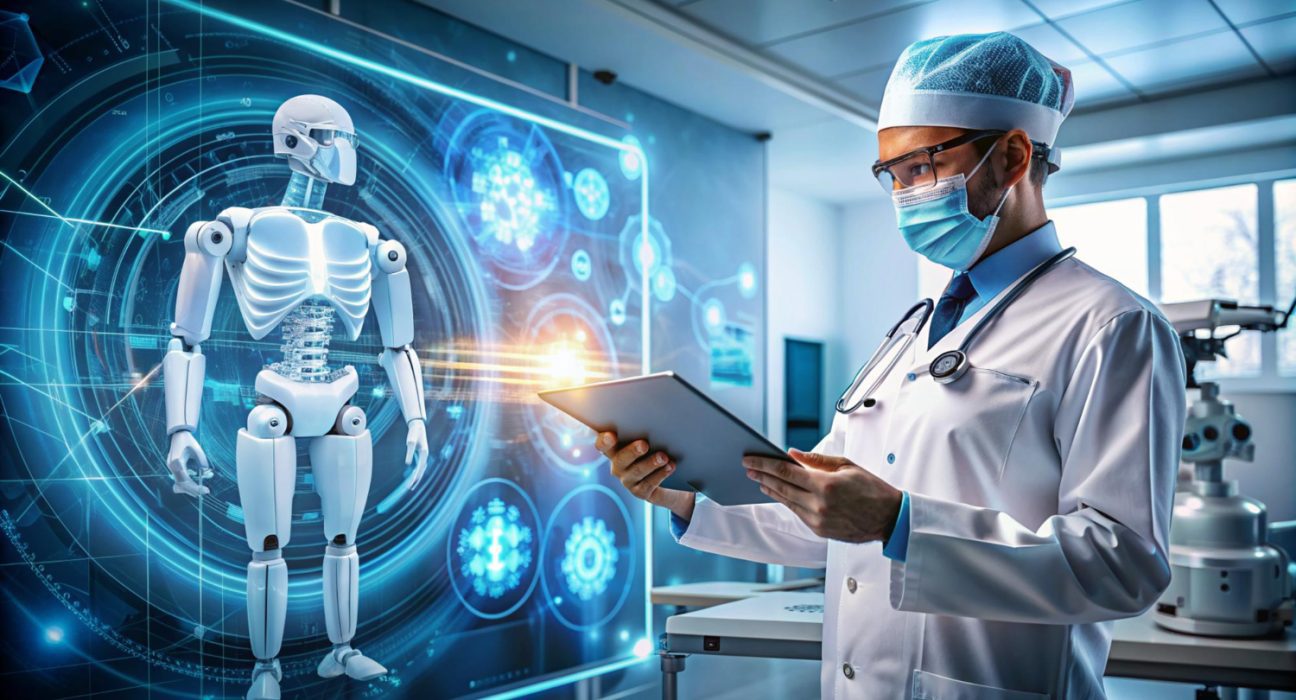Artificial Intelligence (AI) is revolutionizing clinical decision-making by providing healthcare professionals with tools that can analyze large volumes of data and generate actionable insights. From predicting disease outcomes to assisting in real-time diagnostics, AI is enhancing the quality, speed, and accuracy of medical decisions. In this blog, we will explore how AI is being used in clinical decision-making, its benefits, limitations, and real-world applications.
What is AI in Clinical Decision-Making?
AI in clinical decision-making refers to the use of machine learning algorithms, natural language processing (NLP), and other AI technologies to support or automate various aspects of patient care. These technologies can process and interpret complex medical data, suggest potential diagnoses, predict patient outcomes, and even recommend treatment plans. AI models can rapidly identify patterns in patient histories, genetic information, and imaging studies that may be difficult for humans to discern.
How AI is Transforming Clinical Decision-Making
- Predictive Analytics for Early Disease Detection:AI models, such as deep learning networks, are capable of identifying disease markers in medical imaging (e.g., X-rays, MRIs) and other clinical data at a much earlier stage than traditional methods. For instance, AI-powered diagnostic tools have shown to detect breast cancer and lung cancer more accurately by scanning mammograms and CT images, respectively. Early detection enables timely intervention, which can significantly improve patient outcomes.
- Personalized Treatment Recommendations:One of the most promising uses of AI in clinical decision-making is in personalized medicine. AI systems can analyze an individual patient’s genetic makeup, lifestyle, and environmental factors to recommend the most effective treatment options. In oncology, AI helps in determining the best chemotherapy regimen based on the patient’s specific tumor type, thereby increasing the chances of treatment success.
- Real-Time Diagnostic Assistance:AI algorithms can act as real-time diagnostic assistants during clinical evaluations. For example, IBM Watson Health has developed tools that scan through thousands of medical research papers and clinical guidelines to provide evidence-based recommendations to doctors within seconds. This enhances the accuracy of diagnoses and reduces the risk of human error.
- Clinical Decision Support Systems (CDSS):AI-based CDSS can be integrated into Electronic Health Record (EHR) systems to support physicians in making data-driven decisions. These systems alert clinicians about potential medication interactions, suggest alternative treatment paths, and flag unusual lab results for further review. This reduces the cognitive load on healthcare providers and ensures that critical information is not overlooked.
- AI-Driven Risk Stratification:AI models can categorize patients into different risk levels based on their health data. For instance, machine learning algorithms can predict which patients are more likely to develop complications post-surgery or are at a higher risk of hospital readmission. This enables proactive management, such as prioritizing high-risk patients for more frequent monitoring and follow-up.
Key Benefits of AI in Clinical Decision-Making
- Enhanced Diagnostic Accuracy: AI systems can process vast amounts of data at speeds that humans cannot match, leading to higher diagnostic accuracy. This minimizes false positives and false negatives, resulting in better patient outcomes.
- Reduced Cognitive Burden for Physicians: With AI handling data-intensive tasks, physicians can focus more on patient interactions and complex decision-making, ultimately enhancing the quality of care.
- Improved Patient Outcomes: AI’s ability to predict disease progression and suggest personalized treatment plans ensures that patients receive the best care tailored to their specific conditions.
- Operational Efficiency: By automating routine tasks like data analysis, AI reduces the time required for clinicians to evaluate complex cases, allowing for more efficient resource utilization.
Challenges and Limitations of AI in Clinical Decision-Making
Despite its potential, there are several challenges and limitations to the widespread adoption of AI in clinical settings:
- Data Quality and Privacy: AI models require large datasets to be effective. However, healthcare data can often be incomplete, inconsistent, or biased. Ensuring data quality and maintaining patient privacy are significant hurdles that need to be addressed.
- Interpretability and Trust: Many AI models, especially deep learning networks, operate as “black boxes,” making it difficult for clinicians to understand how they arrived at a particular decision. This lack of interpretability can lead to hesitation in trusting AI recommendations.
- Regulatory and Ethical Concerns: Implementing AI in healthcare is not just a technical challenge but also a regulatory one. There are concerns about accountability, potential biases in AI models, and the ethical implications of AI making critical healthcare decisions.
- Integration with Existing Systems: For AI to be effective, it must be seamlessly integrated with existing EHRs and clinical workflows. This requires significant investment in infrastructure and training, which may not be feasible for all healthcare facilities.
Real-World Applications of AI in Clinical Decision-Making
- AI in Radiology: Companies like Zebra Medical Vision and Aidoc use AI algorithms to detect anomalies in radiology images, such as fractures, hemorrhages, and tumors, with high accuracy. This assists radiologists in making faster and more accurate diagnoses.
- AI in Oncology: In cancer care, AI models analyze histopathological slides and genetic data to predict which treatment protocols are likely to be most effective. For example, PathAI uses machine learning to provide precise pathological diagnoses.
- AI in Cardiology: AI models like Eko’s DUO are used to detect heart murmurs and atrial fibrillation in real-time, helping cardiologists identify heart diseases at an early stage.
- AI in Emergency Medicine: In emergency departments, AI-driven CDSS tools can triage patients based on the severity of their symptoms, ensuring that critical cases receive immediate attention.
The Future of AI in Clinical Decision-Making
The future of AI in clinical decision-making is promising, with innovations that are set to redefine patient care. As AI becomes more sophisticated, it will likely expand into more areas of clinical practice, including mental health, surgery, and chronic disease management. The focus will be on developing transparent AI models that clinicians can easily interpret and trust.
Conclusion
AI is already making significant contributions to clinical decision-making, and its role is expected to grow in the coming years. By assisting in diagnostics, providing personalized treatment recommendations, and predicting patient outcomes, AI has the potential to transform the way healthcare is delivered. However, to fully realize its benefits, the healthcare industry must address challenges related to data quality, ethics, and integration.
With the right strategies, AI can become a reliable partner in clinical decision-making, ultimately leading to improved patient care and outcomes.







